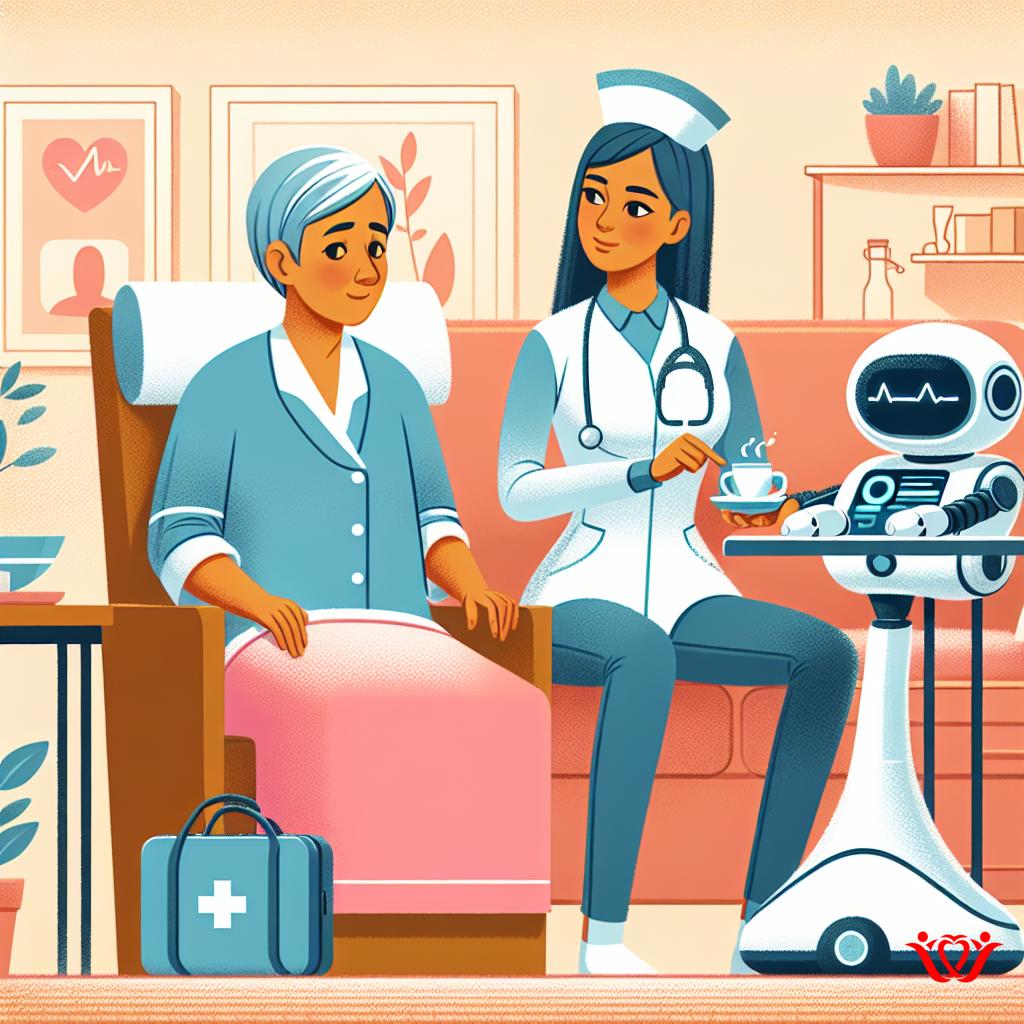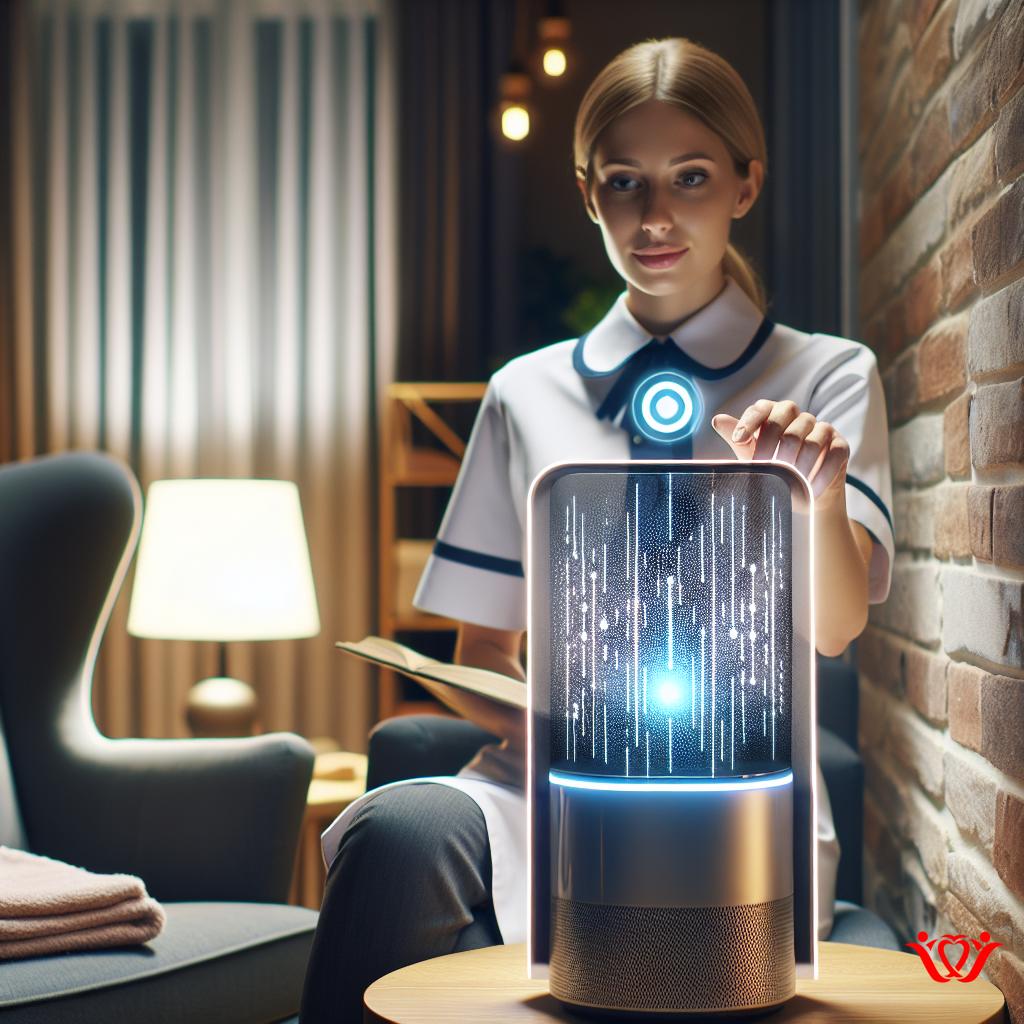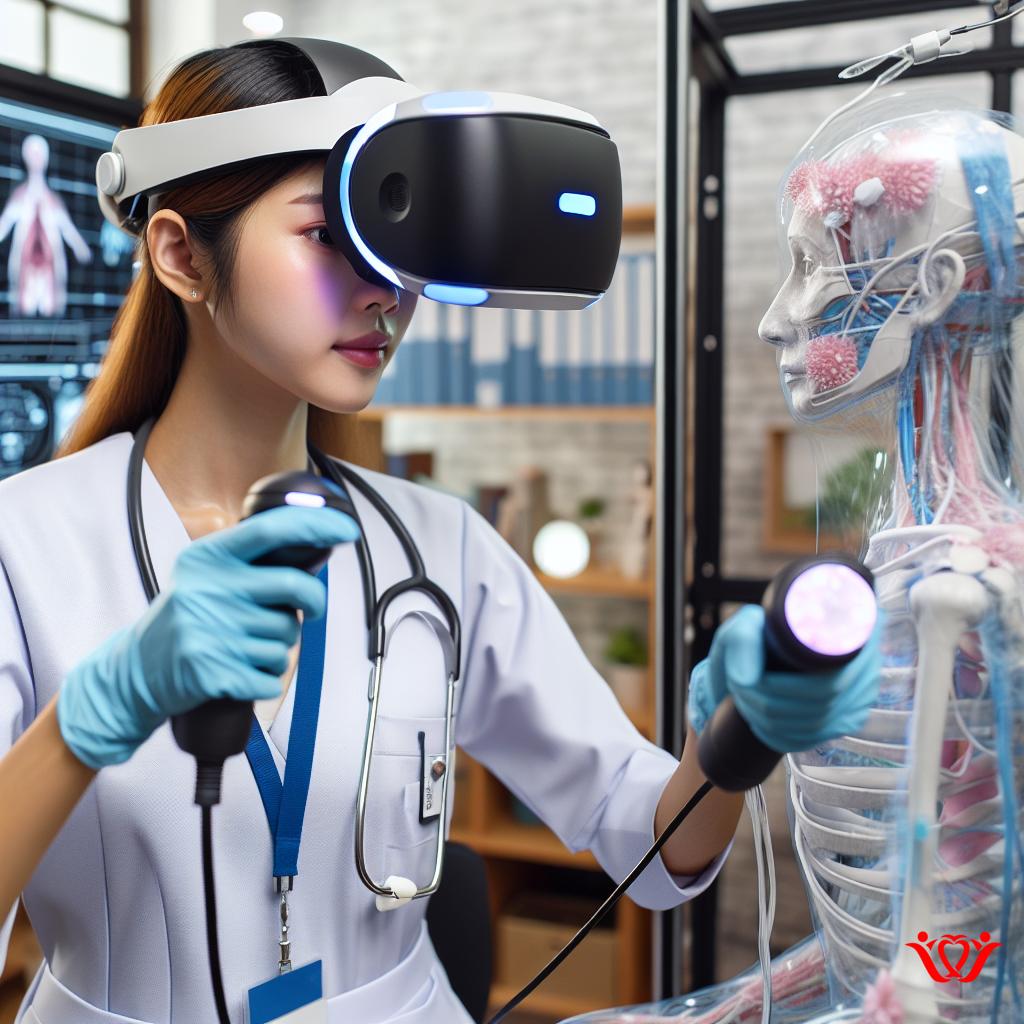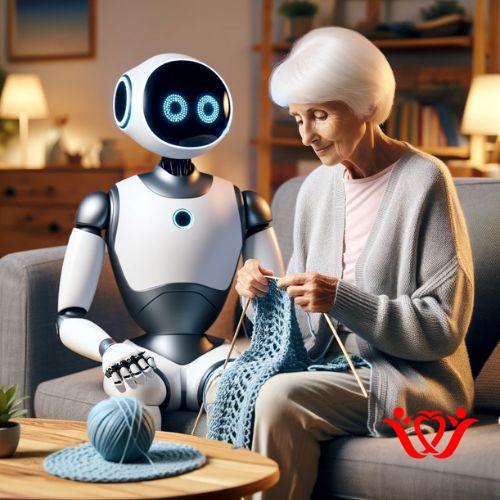
The rise of artificial intelligence (AI) has sparked both excitement and anxiety across various industries, and caregiving is no exception. With advancements in robotics, machine learning, and natural language processing, it’s natural to wonder: will AI replace home health aides? While the prospect of AI-powered care is intriguing, the reality is far more nuanced. Let’s delve into the truth about the future of caregiving and explore the role AI might play.
The Current Landscape: Human Connection Remains Paramount
Home health aides provide invaluable support to individuals who need assistance with daily living activities. Their work goes beyond basic tasks; it involves building relationships, offering emotional support, and understanding the unique needs of each client. This human connection is fundamental to quality care and is something AI currently struggles to replicate.
- Emotional Intelligence: AI lacks the capacity for empathy, compassion, and intuitive understanding that are essential for providing personalized care.
- Complex Decision-Making: Caregiving often involves navigating unpredictable situations and making nuanced decisions that require human judgment.
- Personalized Interaction: The ability to adapt to individual preferences, cultural backgrounds, and emotional states is a hallmark of human caregivers.
Where AI Can Make a Difference: Augmentation, Not Replacement
Instead of replacing home health aides, AI is more likely to serve as a powerful tool to augment their capabilities and improve the overall care experience. Here are some potential applications:
- Monitoring and Safety: AI-powered sensors and wearable devices can track vital signs, detect falls, and alert caregivers to potential emergencies. This can enhance safety and provide peace of mind.
- Medication Management: AI can help ensure accurate medication administration, provide reminders, and track adherence, reducing the risk of errors.
- Remote Assistance: Virtual assistants and telehealth platforms can facilitate remote communication, provide educational resources, and offer support to both caregivers and clients.
- Robotic Assistance: Robots can assist with physical tasks like lifting, transferring, and mobility support, reducing the physical strain on caregivers and improving client comfort.
- Data Analysis and Personalized Care Plans: AI can analyze vast amounts of data to identify patterns, predict potential health issues, and develop personalized care plans tailored to individual needs.
The Benefits of AI Integration:
- Increased Efficiency: AI can automate routine tasks, freeing up caregivers to focus on more complex and personal interactions.
- Improved Safety: AI-powered monitoring can reduce the risk of accidents and ensure timely intervention.
- Enhanced Accessibility: AI can make caregiving more accessible to individuals in remote areas or those with limited mobility.
- Data-Driven Insights: AI can provide valuable insights into client health and well-being, leading to more effective care.
The Challenges and Considerations:
- Cost and Accessibility: Implementing AI-powered solutions can be expensive, potentially creating disparities in access to care.
- Privacy and Security: Protecting sensitive patient data is paramount, requiring robust security measures and ethical guidelines.
- Training and Adoption: Caregivers will need training to effectively use AI tools, and seamless integration into existing workflows is essential.
- Ethical Considerations: Ensuring that AI is used responsibly and ethically is crucial, particularly in areas like decision-making and data collection.
The Future of Caregiving: A Collaborative Approach
The future of caregiving is likely to involve a collaborative approach, where human caregivers and AI work together to provide comprehensive and personalized care. AI can handle routine tasks, provide data-driven insights, and enhance safety, while human caregivers focus on building relationships, offering emotional support, and making complex decisions.
Conclusion:
While AI has the potential to revolutionize the caregiving industry, it is unlikely to replace the essential role of human home health aides. Instead, AI will serve as a powerful tool to augment their capabilities, improve efficiency, and enhance the overall care experience. The key lies in finding the right balance between technology and human connection, ensuring that care remains compassionate, personalized, and focused on the well-being of the individual. As technology advances, we must prioritize ethical considerations and ensure that AI is used responsibly to create a more supportive and accessible future for caregiving.









0 Comments